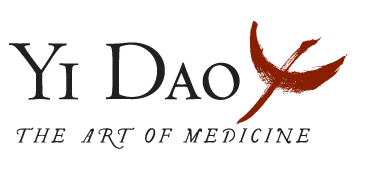**This course is now full. To register your interest for future courses, please email info@yidaoclinic.petewinter.com and we will keep you informed of upcoming cpd events.**
Ah Shi treatment is often poorly taught on acupuncture courses, if it is taught at all. This is a great shame, as it is an essential aspect of acupuncture. When done correctly, it can yield significant results remarkably quickly, often in just one or two sessions – even for chronic conditions (see below for case examples). Ah Shi treatment, as taught to us by Andrew Nugent-Head, is the bulk of physical treatment that we do. Most of our referrals at Yi Dao Clinic come from successful Ah Shi work, and we are now also getting GP referrals for physical conditions from it.
This course was set up as we hope to spread the usage of high-quality Ah Shi work in the UK. At the end of it, participants will have the understanding and skill to perform simple Ah Shi treatments and start building up experience of using this remarkable way of treating.
Course details:
Day 1: Ah Shi perspective of treatment, palpation of Ah Shi areas, needling techniques and patient responses (eg fasciculations)
Day 2: Ah Shi treatment for lower body injury. Using case studies, we will discuss and practice treatments for lower back, hip, knee and ankle/foot.
Day 3: Ah Shi treatment for upper body injury. Using case studies, we will discuss and practice treatments for shoulder and arm, upper back, neck and head conditions.
Course teachers: Zarig and Conny Cooper.
Zarig and Conny are long-term students of Andrew Nugent-Head’s. They have recently become part of his teaching team, travelling internationally to assist at his seminars. Please see individual practitioner pages for full biogs.
Participants: Practitioners or students of acupuncture.
Course dates: Sunday 13th January, Sunday 10th March, Sunday 12th May
All days run 10am – 5pm, with lunch break. Please bring your own lunch, or you can buy lunch from cafes in the area.
Dates are spread out to allow participants to practice the material in their clinic in between contact days.
Venue: The Rooms Above, West Heath Yard, 174 Mill Lane, West Hampstead, NW6 1TB.
Cost: Earlybird is £210 for the 3-day course if paid by 15th Dec, after that £240.
Deposit of £50 secures your place, balance to be paid by 15th Dec.
Refunds possible up to 1 month before start of course, after that fee is non-refundable.
Please email info@yidaoclinic.petewinter.com to book your place.
Clinical Case examples:
1. A 61-year old woman presents with constant lower back pain which she has had for many years. She takes painkillers every morning for it. MRI shows spinal stenosis, recommended treatment by consultants is steroid injection, if this is unsuccessful they recommend surgery. We do one Ah Shi treatment.
Feedback from patient a week later at follow-up: the pain nearly disappeared the day after the treatment. She hasn’t needed a painkiller since, has been able to exercise and lead a normal life. She is thrilled!
2. A 25-year old man presents with acute lower back pain from lifting free weights at the gym. He has very little mobility, the pain is constant, rated 10/10. He has seen an osteopath who suspected a slipped disc and recommended an MRI. We do an Ah Shi treatment.
At follow-up 3 days later, the pain is 50% better. He is able to sleep and move around. The patient is relieved as it is obviously not a disc injury and the MRI is not necessary. We do another Ah Shi treatment.
At follow-up 4 days later, he reports the pain is 95% gone.
3. A 72-year old woman presents with pain in her right shoulder, which started after a fall a year previously and has been getting progressively worse. The pain is now constant, rated 9/10, makes her want to cry. She takes regular painkillers. NHS Physiotherapy has not been helpful.
After one Ah shi treatment, the pain is reduced. After a second treatment, the pain has become only occasional, rated 3/10. The patient is very happy as this is something she can live with and decides to not pursue further treatment.
